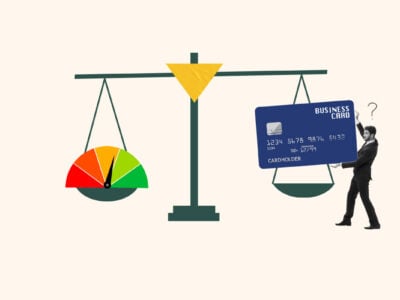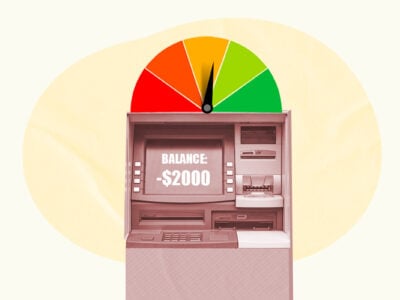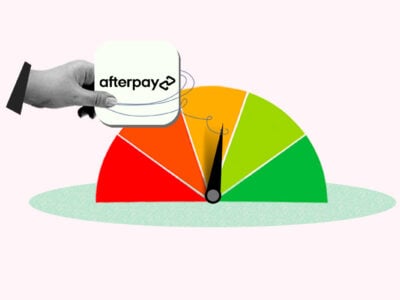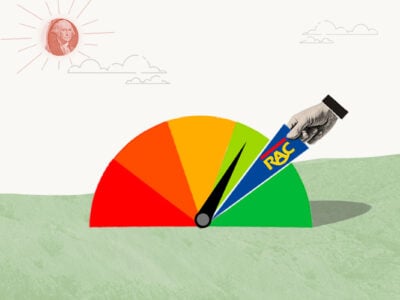850 Credit Score: Good or Bad?

At a glance
850 is the best credit score you can have, and it’ll get you the best terms for any loan or credit account. We’ll explain the benefits of an 850 credit score and how you can make the most of your good credit.
Table of Contents
What does an 850 credit score mean?
A credit score of 850 means that your credit reports show that you have a long track record of responsibly managing a variety of accounts. It indicates to lenders that you’re a very low-risk borrower. An 850 credit score is the highest credit score you can get in both of the two major credit scoring models in the US (FICO and VantageScore, and it’s well above the national average.
To put your score of 850 into context, here’s how it compares with the average for different generations:
How an 850 credit score can benefit your finances
Having an 850 credit score means that lenders will offer you all the best rates on loans, credit cards, and other types of credit. This will end up saving you lots of money when you open accounts because you’ll be able to take advantage of the low interest rates and other financial benefits of a good credit score.
Loans and Credit You Can Get with an 850 Credit Score
| Credit Type | Loan Type | Eligibility |
|---|---|---|
| Installment loans | Mortgage | Eligible for all types of mortgages with the best interest rates |
| Car loan | Eligible for auto loans with the best interest rates | |
| Private student loan | Eligible without a cosigner | |
| Personal loan | Eligible | |
| Revolving credit | Unsecured credit card | Eligible |
| Secured credit card | Eligible | |
| Personal line of credit | Eligible | |
| Open credit | Cell phone contract | Eligible without a deposit |
| Utilities (gas, electricity, etc.) | Eligible | |
| Charge cards | Eligible |
In addition to allowing you to qualify for the best credit card and loan terms, your good credit can help you snag your dream job or apartment. This is because many landlords and employers run credit checks. It can also save you money on services like insurance.
How your 850 credit score was calculated
As mentioned earlier, the two main credit scoring models are FICO and VantageScore. Although the two models have minor differences, both calculate credit scores based on the following factors:
- Payment history: Late payments lower your credit score. The later the payment, the more damage it will do. Charge-offs, collection accounts, and bankruptcies are even more damaging to your score.
- Credit utilization rate: This refers to the proportion of your available credit that you’re using (also known as your debt-to-credit ratio). A lower utilization rate is better for your credit score. Many experts recommend keeping yours below 30% (meaning you should try not to reach a $3,000 balance on a credit card with a $10,000 limit). VantageScore recommends keeping your credit utilization even lower, under 10% if possible. 1
- Length of credit history: This is determined by the age of your oldest and newest credit accounts as well as the average age of all of your accounts. Old accounts that you’ve had for many years boost your credit score, whereas new accounts lower it.
- Credit mix: Your credit score will be lower if you don’t have a balanced mix of revolving credit accounts (e.g., credit cards and store credit) and installment accounts (e.g., mortgages, car loans, and student loans).
- New accounts: When you apply for a credit card or loan, the lender will run a credit check. This will trigger a hard inquiry Hard inquiries take a few points off your credit score, and the effect lasts for up to 12 months. 2 Actually opening the account can further hurt your score and have even longer-lasting effects.
VantageScore vs. FICO credit score calculation methods
VantageScore and FICO take the same factors into account to produce your score, but they weigh them slightly differently (which is why you might have different credit scores in the two models). Here are just a couple of the differences between FICO and VantageScore: 3
- VantageScore groups the length of your credit history and your credit mix into one category called Depth of Credit.
- In addition to your credit utilization (represented as a percentage), VantageScore also looks at your current balances and your remaining available credit (represented as dollar figures).
The tables below show how the models weigh your financial decisions to produce your score:
| Payment History | Amounts Owed | Length of Credit History | Credit Mix | New Credit | |
|---|---|---|---|---|---|
| FICO | 35% | 30% | 15% | 10% | 10% |
| Payment History | Credit Utilization | Depth of Credit | Recent Credit | Balances | Available Credit | |
|---|---|---|---|---|---|---|
| VantageScore 3.0 | 40% | 20% | 21% | 5% | 11% | 3% |
| VantageScore 4.0 | 41% | 20% | 20% | 11% | 6% | 2% |
Putting your 850 score in context: how it compares to other scores
The table below shows the average VantageScore and FICO credit scores among US consumers, as well as your credit rating in each of these models and how far your 850 credit score is from the next scoring category.
| Your Rating | Points to Rating Upgrade | Points to Rating Downgrade | Average Score in US | |
|---|---|---|---|---|
| FICO | Exceptional | N/A | -51 | 711 |
| VantageScore | Excellent | N/A | -70 | 688 |
How to make the most of your perfect credit score
Even if there’s no way you can further improve your credit score, you have plenty of options when it comes to optimizing your finances that wouldn’t be feasible if you had a lower credit score.
Here are a few strategies you can use to take advantage of your strong credit profile and optimize your finances.
Maintain your good credit
The first thing you need to think about is how to make sure that you don’t lose all the progress that you’ve made.
To keep your credit score high, follow these tips:
- Pay all of your bills on time.
- Avoid opening any new credit accounts (unless you need to build credit).
- Avoid closing old accounts.
- Send a debt validation letter demanding proof of any future debts that anyone tries to collect from you—this is one of your rights under the Fair Debt Collection Practices Act (FDCPA).
Ask your current creditor for better terms
If you have a revolving credit account with a good payment history, then consider contacting your creditor and asking for better terms, such as a higher credit limit or lower interest rate. Highlight your strong payment history and loyalty as a customer. Some creditors are willing to make accommodations to keep you from looking elsewhere for a better deal.
In addition to helping your finances, this can help you maintain a high credit score. For example, getting an increase in your credit limit will automatically reduce your credit utilization rate, as long as you don’t start spending more.
Consider consolidating your debts
You can consolidate your debts by taking out a debt consolidation loan and using the loan to pay off your other debts. The primary purpose of debt consolidation is to reduce the number of payments and amount you pay each month.
With an 850 credit score, you can make the most of this approach because you’ll qualify for loans with low interest rates. However, there are some potential downsides to think about.
For example, if the loan term is long, then you may end up paying more overall in interest, even if your monthly payment is lower. If you do consolidate your debts, make sure to keep your old accounts open so that you don’t reduce the amount of available credit you have.
Explore your refinancing options
Now may be a good time to refinance your car loan or your mortgage. Doing so can save you money in the long term and potentially help your credit by making it easier to keep on top of future payments.
Although it is possible to refinance when you have bad credit, you’ll reap much greater rewards with a top credit score. For example, you’ll get better interest rates, which will save you money and may allow you to pay off the loan quicker.
Loans and credit cards you can get with an 850 credit score
As we mentioned earlier, you can now get just about any type of financing at the very best rates. Here are all the types of credit you can get and an overview of their benefits.
Auto loans you can get with an 850 credit score
Getting an auto loan is easy with a credit score of 850. You’ll qualify for all the best interest rates, and you’ll even be eligible for 0% APR car loans that some new car dealers offer.
According to a 2020 quarterly report by Experian, people with credit scores of 781–850 (referred to as super-prime borrowers) received average interest rates of 3.80% on used car loans and 2.65% on new car loans, whereas people with credit scores in the range of 501–600 (subprime borrowers) had much higher average interest rates, at 16.56% for used car loans and 10.58% for new car loans. 4
Depending on the loan term and how much you’re borrowing, this difference could amount to hundreds or thousands of dollars in savings. If you’re thinking about buying a car, then you might want to start looking around now while your score is high.
Mortgages you can get with an 850 credit score
You’re eligible for any type of standard mortgage if you have a credit score of 850. The following are all the mortgages you can get:
- FHA loan: Your credit score qualifies you for maximum financing (a down payment of only 3.5%) on a mortgage backed by the Federal Housing Administration (FHA).
- Conventional mortgage: You’ll meet the credit requirements for any conventional mortgage because your credit score is well above 620, which is the minimum score required by the Federal National Mortgage Association (Fannie Mae) and Federal Home Loan Mortgage Corporation (Freddie Mac). 5 6
- VA loan: The US Department of Veteran Affairs backs VA home loans, and you’ll be eligible as long as you’re a member of the military (current or former) or a family member of someone who is.
- USDA loan: As long as you have two tradelines that have been open for 12 months in the past two years, you’ll meet the credit requirements for a USDA loan. 7
- Jumbo loan: Compared with conventional conforming mortgages, jumbo mortgages are larger, and they exceed the maximum value that Fannie Mae and Freddie Mac will accept when buying mortgages from lenders. Because jumbo mortgages come with a higher risk, lenders will only consider giving you one if your credit score is very good.
Credit cards you can get with an 850 credit score
As a super-prime borrower, you’ll have plenty of options when looking for a new credit card, and you’ll be eligible for exclusive deals, which card issuers reserve for the highest scorers (presuming you meet their other non-credit requirements).
The types of credit cards you can get generally fall into two categories:
- Secured credit cards: These cards require a security deposit, which your lender will use as collateral. The amount you put down will usually be your credit limit. Secured cards are a low-risk option if you want to build credit while ensuring that you don’t spend beyond your means.
- Unsecured credit cards: These cards don’t require a deposit. Your card issuer will set your credit limit according to how creditworthy they perceive you to be. In many cases, these cards offer cash back on certain purchases and other rewards.
As long as you can manage your spending, it’s a good idea to use your good credit score to take advantage of the potential rewards and higher credit limit that come with an unsecured card. With that said, if you’re worried about overspending, then a secured credit card is always a safe bet.
Be aware that opening a new credit card account will hurt your credit score, especially if most of your accounts are pretty old. This is because it will automatically lower the average age of your accounts. In addition, most applications will trigger a “hard inquiry,” which will cause your credit score to temporarily drop.
Nevertheless, as long as you keep up the good habits that got you an 850 credit score, your score will recover. Ultimately, the benefits will likely outweigh the disadvantages in the long run.





